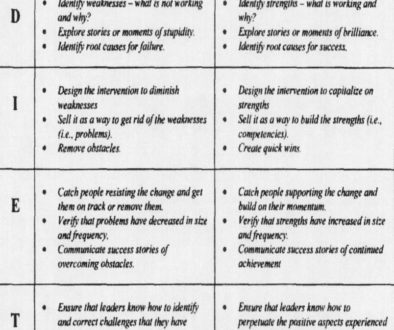Psychological Contract
Psychological Contract
According to Rousseau (1995), the psychological contract may refer to the set of assumptions about promises that are given and accepted voluntarily in the context of a relationship which has a voluntary exchange character between two or more parties such the employee and employer. According to Sturges et.al. (2005), the psychological contract has the capacity to generate increases in productivity, job satisfaction as well as low employee turnover which may also be attributed to the organizational effectiveness that is promoted by the psychological contract (Schein, 1980). According to Robinson and Rousseau (1994), the expectation of each party involved in the psychological contract is assured of being met when both parties hold their end of the bargain but when one party fails to honor its obligations as stated in the contract then there is a breach of the psychological contract that was agreed upon. According to the author, the psychological contract serves two main functional purposes, which include; the capacity to predict how much output the employee will produce for the employer as well as the capacity to predict the rewards that employees will get from employers for the outputs they produce.
Steps To Ensure Relevance Of Psychological Contract
According to Hiltrop (1996), over the years there has been increasing changes in the psychological contracts that employers offer to their employees in an environment, which has increasingly become insecure for the continuous employment of the employees. According to Rousseau (1994), explains that since the psychological contract is informal, subjective, and dynamic in nature, it is difficult to put detail to the contract at the time it is created. The author explains further by stating that as a result of the informal nature of the psychological contract, people, in this case, the employer, keep changing the terms of the contract in an inconsistent manner but which has important implications for the organization. According to Hiltrop (1996), as the conditions of employment are continually and unilaterally changed by employers, job insecurity increases and people feel betrayed due to a breach of the psychological contract. The author explains further by stating that in comparison with the new terms in the psychological contract which include; a short-term relationship, self-reliance, flexibility, and focus on achieving immediate results, the old contract featured; permanence, stability, fairness, predictability, tradition as well as mutual respect among members of the organization. Doherty and Horsted (1995) stated in their work that their suspicion is that in the new psychological contract, the organizations are buying just half of the contract, which leads to job insecurity among employees, but at the same time, the organization expects the employees to be committed and loyal to the organization.
According to Herriot (1992), in order for organizations to achieve the ideal employee who is loyal and committed to the organization, there needs to be continual review and renegotiation of the psychological contract over time after the employee has been admitted into the organization. With regards to ensuring the relevance of the psychological contract between the consultant and client organization, based on the assertion of Herriot (1992) as well as Hiltrop (1995), it is important for the consultant to renegotiate the terms of the contract as the relationship between the consultant and client change; as the role of the consultant may change.
References
Doherty, N. & Horsted, J. (1995). Helping survivors stay on board, People Management, January, pp. 26-31.
Herriot, P. (1992). The career management challenge: Balancing individual and organizational needs. London: Sage Publications.
Hiltrop, J. M. (1996). Managing the changing psychological contract, Employee Relations, 18(1), 36–49. Retrieved from http://search.proquest.com/docview/235207262?accountid=144789
Hiltrop, J.M. (1995). The changing psychological contract: The human resource challenge of the 1990s, European Management Journal, 13 (3), p. 286.
Robison, S.L, & Rousseau, D. (1994). Violating the psychological contract: Not the exception but the norm, Journal of Organizational Behavior. 15: 245 – 259.
Rousseau, D. (1995). Psychological contracts in organizations: Understanding written and unwritten agreements. Thousand Oaks, CA: Sage Publications.
Rousseau, D. (1994). Two ways to change and keep the psychological contract: Theory meets practice, Executive Summary for the International Consortium for Executive Development Research, Lausanne, Switzerland.
Schein, E. (1980). Organizational Psychology. Englewood-Cliffs, NJ: Prentice Hall.
Sturges, J., Conway, N., Guest, D., & Lieffohe, A. (2005). Managing the career deal: The psychological contract as a framework for understanding career management, organizational commitment and work behavior, Journal of Organizational Behavior. 26(7): 821 – 838.




